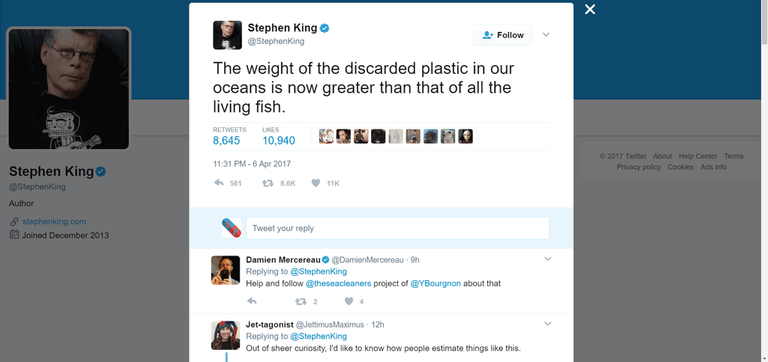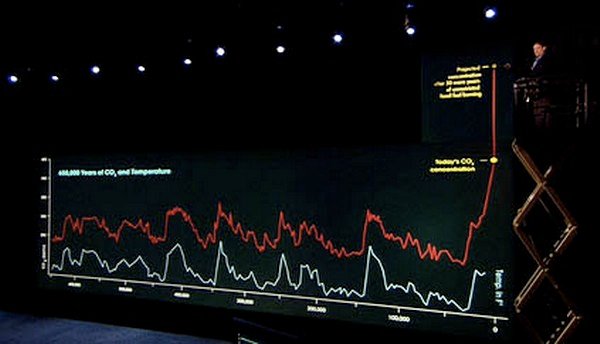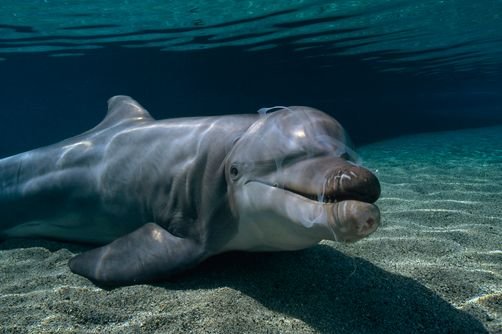When I was a kid, I wanted to be a novelist? Why? Because of Stephen King.
I wanted to write like him, be like him, maybe not sound like him, but certainly to be able to speak like him -- to say the things he said.
He was my ultimate source of wisdom and inspiration. "IT" was the shit. "Christine" was pristine! "Pet Sematary" was legendary! Cujo was... er... Huge-O? Anyway, you get my drift...
So of course I follow the master of horror on Twitter. I'm all grown up now, and I've got goals other than being a novelist, but I still have a soft spot for King, even though I haven't read any of his work from about Desperation onward.
However, today, I was a bit taken aback to see old Steve-O (oops, I remember he hates being called that) post the following Tweet:

"The weight of the discarded plastic in our oceans is now greater than that of all the living fish."
The Tweet has (at the time of writing) ~11,000 likes and was followed up with a barrage of comments about environmental causes, recycling, and other generally pro-fish sympathetic statements. Every three or four posts, you'd get the same hilarious joke: "Now THIS is the true horror!". Oh boy the wit!
My reaction to the Tweet was somewhat different. The sceptic in me was hearing nothing but alarm bells. Despite this being sourced from my childhood hero, someone who has millions of followers and a lot of influence, the words that formed in my head were "that really sounds like something that's not true."
But surely good ol' Kingy wouldn't lead me astray? He's a smart guy, infinitely more intelligent than me, and not someone who would Tweet a falsehood to make a political statement, right? He wouldn't lie to me, and he wouldn't make mistakes... so the only conclusion I could draw was our fish are in big flipping trouble!
However, a very fast Google search turned up the probable source for his assertion. It is a Guardian article titled "More plastic than fish in the sea by 2050, says Ellen MacArthur" -- King's Tweet is the first result in the search, which is a red flag right there.
The article is based on alarming projections contained in an Ellen MacArthur Foundation report predicting that the production of new plastics will quadruple by 2050, and will consume 20% of all oil production. With only 5% of plastics being recycled currently, this will lead to increased leakage of plastics into the oceans, equalling one third of the weight of all fish by 2025, and finding parity by 2050.
Business Insider and other mainstream publications published articles on this report too, but they all say by 2050! I couldn't find a single source claiming this is already true, other than Stephen King himself.
I scrolled down the replies to the original Tweet and found some others had done the same 28 seconds of research I did. Perhaps 1 in 100 replies (no that's not a scientifically measured statistic, just my general impression) challenged King's assertion, and of course, King wouldn't have time to reply to those.
Now don't get me wrong. Obviously, ocean pollution is a major concern, but the sources are a touch alarmist. The original Ellen MacArthur report tends to assume the bad stuff we're doing will continue exponentially, while good stuff like recycling, improvements in technology, or a simple slow-down in the amount of plastics being used, will remain static.
It is an issue worthy of our attention, but, as with all environmental issues, it should be dealt with on the basis of available facts. Shocking as it is, the idea that there would be more plastic in the ocean than fish, comes with a bunch of questions.
How does one determine both the weight of all fish in existence and the weight of all plastic dumped in the ocean? Where is this plastic -- floating, mixed in with the water, or buried under the sea bed? Is it near beaches of evenly distributed throughout the ocean? What form does it take -- microscopic particles, or big chunks that would cause choking hazards for younger fish? Are chemicals leaking out? What's the impact of it, if true?
Hell, I probably have more plastics in my house than people by weight, but the environmental impact on me is overall quite positive. Could the fish eventually form bench tops, chopping boards and appliances? If so, they could open an underwater Sushi restaurant and I'm sure it would more than fund the cleanup.
They could call it "Swimmingly Fresh Sushi".
OK, that's a joke, but the point stands. When you politicise facts -- and express them emotively, rather than factually -- yes, you may advance your cause with the masses. But have you actually done it a disservice in the longer term?
How much damage did Al Gore's hockey stick chart controversy do to the climate change movement in the long run? If it hadn't been compellingly criticised as tricky data manipulation, would we currently have an entire movement of climate sceptics?

Worst of all, did it hand the oil companies exactly what they needed to convince the public that they should continue polluting the planet with impunity? If the hockey stick was a manipulation, then it wasn't worth the disruption to our global economy to prioritise countering global warming or climate change, right!?
However, this isn't an article about the nature of climate change, or environmentalism. It's about human nature and how we discern facts.
With so much seemingly going wrong in the world, each cause vying for our attention, shouldn't we prioritise based on true merit, using the scientific method rather than public outrage as a tool?
Ocean pollution is evidently a cause Stephen King believes in strongly, evidenced by the fact it was the only thing he Tweeted today, following his equally weighty public lauding of the TV show "Colony".
King must believe it's so urgent that it should take priority over, say, the US stepping up it's intervention in the Syrian civil war, which many in the alternative media posit could be predicated on false assumptions.
Not to mention, the looming Syrian war is happening now -- we have 35 years to gradually improve plastics recycling.
I bring this up not to criticise Mr King. He's still a legend to my mind, and I'm sure he wouldn't deliberately lie for a political cause. He probably just misread the headlines and Tweeted without thinking. He'll possibly even delete the Tweet when he realises what's happened.
I bring it up because I think this whole phenomenon of "fake news" is more than just people making factual blunders. It's a blurring of a very important line between scientifically researched fact and politicised meme generation.
Pretty much everybody believes that dumping plastics into the ocean is a bad thing -- we've all seen the poor dolphins with beer packaging cutting into their skin -- but does that excuse, or even justify, disseminating information without properly verifying it first?
True, we can't all be trained journalists -- even most journalists don't seem to be trained journalists anymore -- but we can at least do a quick verification of any facts we distribute on social media.
It took me about 30 seconds to Google Stephen King's tweet, and then another couple of minutes to click through to the report, read the synopsis, examine the various info-graphics, and skim the report itself. It was nowhere near a thorough investigation, but it was enough to show me the information was not safe for a re-tweet.
And it's a shame. I don't like seeing dolphins breathing in our shitty plastic by-products anymore than you do. I don't like the fact that 20% of our civilisation's most precious resource will go to producing unsustainable plastics. And I would very much like to support the concept posited in the original report of a Circular Economy, where recycling is built in to every manufacturing business model and forms part of it's profit incentive.

If we're going to progress as a species, we need to acknowledge our weaknesses as well as our strengths. Confirmation bias is an intrinsic part of our makeup as human beings. We form beliefs and we cling to them, sometimes even fight for them, long after the information that fed the beliefs has faded from our memories.
In an evolutionary sense, perhaps this is an efficient way to construct our world view. We wouldn't want to have to evaluate each belief from first principles each time we need to make a decision.
However, perhaps it would be healthy to challenge and refresh our core beliefs every now and again.
With so much information at our fingertips, often pushed on us unfiltered by friends and colleagues on social media, it's easier than ever to adopt a false belief and let it move into that spare room in our minds that is reserved for unchallenged assumptions. If you're going to let something live there, at least make it pay rent periodically.
If we don't, where does that lead us? We might end up sleeping through World War III while our greatest minds (AKA, you, me and Dougie over there in the corner) are trying to lobby Coke to abolish the thin plastic coatings inside their cans.
Interesting, so I looked it up on Google the best I could find was this from the World Economic Forum:
Last year (in this case last year was 2015), a study estimated that around eight million metric tons of our plastic waste enter the oceans from land each year. Japan catches about 5 million metric tons a year, so you are right Mr. King's data is wrong. I know for a fact that the plastic used on six-packs is especially dangerous for small fish. So despite Mr King's tweet being wrong we do have to find a way to discard plastic in a safe way.
But yes, I think Mr. King's tweet was fake news so I agree with you.
Exactly. He's not wrong on the intent, just the data. I can't for the life of me find where he got the idea, unless it was just misreading that Guardian article.
As such, he does a disservice to the cause. If you want to convince people to care about something, at least respect them enough to do it with truth.
Disclaimer: I am just a bot trying to be helpful.